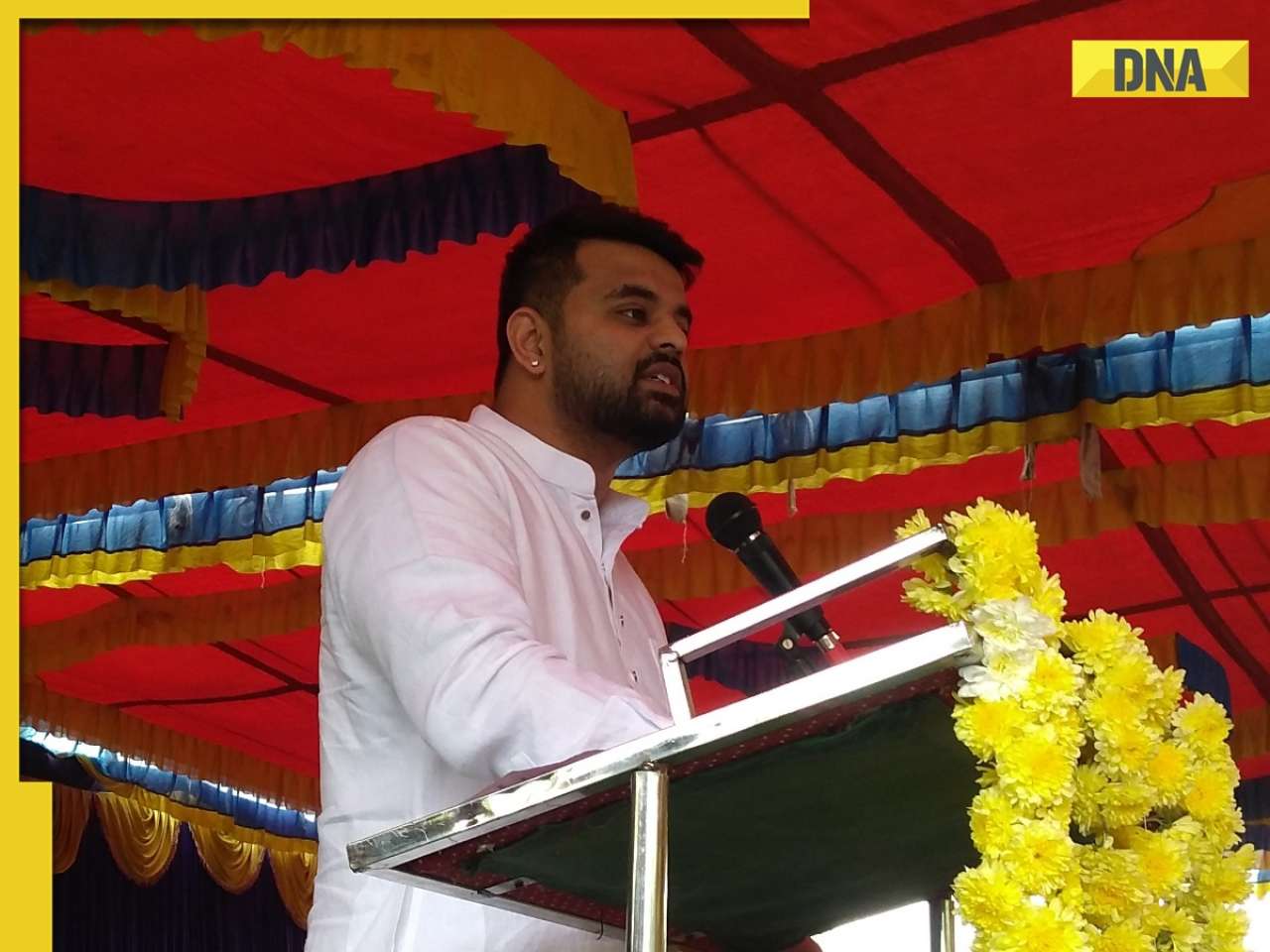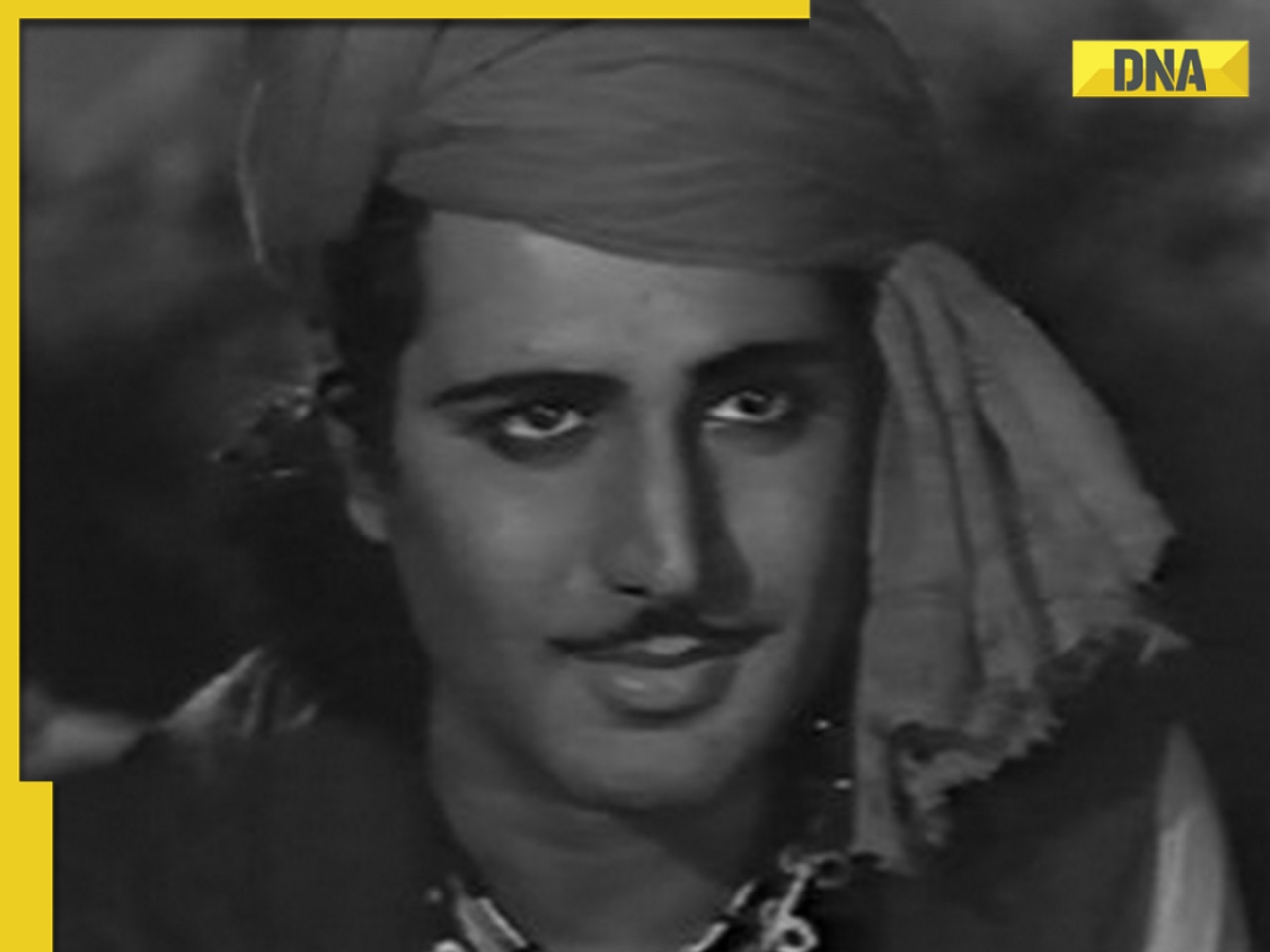The soft-spoken sardarni gets agitated when talking about how no one understands her love for literature. In an interview, Bajwa tells The Mag why it took her so long to write her second novel. Excerpts:
‘I’m not a memsaab at heart,’ claims Rupa Bajwa, whose second novel Tell Me A Story comes eight years after The Sari Shop. The soft-spoken sardarni gets agitated when talking about how no one understands her love for literature. In an interview, Bajwa tells DNA why it took her so long to write her second novel. Excerpts:
Why did it take you 8 years to write your second novel?
Technically, this is my third novel. After The Sari Shop, I started writing my second novel. But somewhere along the way, I felt like I was falling into the trap of a formula, like some Bollywood films. I want my writing to be honest. The Sari Shop was highly flawed, but it was genuine. I had a lot of anger that translated in the novel. That it was well received was a fluke. I believe that just because something has worked, doesn’t mean you should recycle your emotions for another book of the same kind. If I had wanted, I could have cashed in on the success of The Sari Shop and belted out a novel every 2-3 years. But I wouldn’t be a very sincere writer if I did that. Moreover, even while I was writing, life was going on around me. I had a baby and that took up a lot of time. Earlier, I could write for 14 hours at a stretch. I don’t think that’s going to be possible again.
How did you put yourself in your characters’ shoes?
Honestly, I don’t know. I don’t do research or anything before I start writing. And I can’t categorise the people I meet, put them in boxes, label them, and then treat them accordingly. I actually connect well with people I’m talking to. For instance, before I started writing The Sari Shop, I used to visit this shop in Amritsar with my mother. I watched shopkeepers lay out saris on mattresses covered in white. And there was this errand boy, whose job is to take out the rolls of material and then stack them back. When talking to these people, I wasn’t thinking of writing a book about them, I was just interested in them — not as shopkeepers, but as people. I’m not a memsaab at heart.
What are you working on next? Is your next novel also set in Amritsar?
Main next khud khushi kar rahi hu! Don’t write ‘suicide’ — it doesn’t have the same Sufi ring as ‘khud khushi’. Really, think of Kafka, if people understood what he was about, then maybe he wouldn’t have to kill himself. To me, he wasn’t just a melancholic writer — he was a real person with real issues. I didn’t have a literary education. So my relationship with literature is a very personal one. Nobody wants to believe that I care about literature. Everyone’s become so cynical these days.
And no, I’m not going to kill myself. I have a baby to look after. My next novel is still in its nascent stages. I don’t know yet where I’m going to set it. All I have so far is the structure of the story and the outlines of the characters.
Who are the writers you look up to?
Anton Chekhov — I have had a poster of him in my room in Amritsar since I was 17, as if he were a rockstar. Other writers I admire are Leo Tolstoy, Rabindranath Tagore, Mark Wells, Dostoevsky, Kafka, Ismat Chugtai, Manek Bandopadhyay, RK Narayan, Manto. I like Gustave Flaubert’s Madame Bovary, but I prefer Sentimental Education. PG Wodehouse is my go-to writer when things go wrong. Gerald Durrell’s My Family And Other Animals is another favourite of mine. Lately, I’ve also started enjoying Sarah Waters and Margaret Atwood.
![submenu-img]() Meet India's highest paid director, charges 30 times more than his stars; not Hirani, Rohit Shetty, Atlee, Karan Johar
Meet India's highest paid director, charges 30 times more than his stars; not Hirani, Rohit Shetty, Atlee, Karan Johar![submenu-img]() Indian government issues warning for Google users, sensitive information can be leaked if…
Indian government issues warning for Google users, sensitive information can be leaked if…![submenu-img]() Prajwal Revanna Sex Scandal Case: Several women left home amid fear after clips surfaced, claims report
Prajwal Revanna Sex Scandal Case: Several women left home amid fear after clips surfaced, claims report![submenu-img]() Meet man who studied at IIT, IIM, started his own company, now serving 20-year jail term for…
Meet man who studied at IIT, IIM, started his own company, now serving 20-year jail term for…![submenu-img]() Gautam Adani’s project likely to get Rs 170000000000 push from SBI, making India’s largest…
Gautam Adani’s project likely to get Rs 170000000000 push from SBI, making India’s largest…![submenu-img]() DNA Verified: Is CAA an anti-Muslim law? Centre terms news report as 'misleading'
DNA Verified: Is CAA an anti-Muslim law? Centre terms news report as 'misleading'![submenu-img]() DNA Verified: Lok Sabha Elections 2024 to be held on April 19? Know truth behind viral message
DNA Verified: Lok Sabha Elections 2024 to be held on April 19? Know truth behind viral message![submenu-img]() DNA Verified: Modi govt giving students free laptops under 'One Student One Laptop' scheme? Know truth here
DNA Verified: Modi govt giving students free laptops under 'One Student One Laptop' scheme? Know truth here![submenu-img]() DNA Verified: Shah Rukh Khan denies reports of his role in release of India's naval officers from Qatar
DNA Verified: Shah Rukh Khan denies reports of his role in release of India's naval officers from Qatar![submenu-img]() DNA Verified: Is govt providing Rs 1.6 lakh benefit to girls under PM Ladli Laxmi Yojana? Know truth
DNA Verified: Is govt providing Rs 1.6 lakh benefit to girls under PM Ladli Laxmi Yojana? Know truth![submenu-img]() Jr NTR-Lakshmi Pranathi's 13th wedding anniversary: Here's how strangers became soulmates
Jr NTR-Lakshmi Pranathi's 13th wedding anniversary: Here's how strangers became soulmates![submenu-img]() Streaming This Week: Heeramandi, Shaitaan, Manjummel Boys, latest OTT releases to binge-watch
Streaming This Week: Heeramandi, Shaitaan, Manjummel Boys, latest OTT releases to binge-watch![submenu-img]() Remember Ayesha Kapur? Michelle from Black, here's how actress, nutrition coach, entrepreneur looks after 19 years
Remember Ayesha Kapur? Michelle from Black, here's how actress, nutrition coach, entrepreneur looks after 19 years![submenu-img]() Remember Heyy Babyy's cute 'Angel' Juanna Sanghvi? 20 year-old looks unrecognisable now, fans say 'her comeback will...'
Remember Heyy Babyy's cute 'Angel' Juanna Sanghvi? 20 year-old looks unrecognisable now, fans say 'her comeback will...'![submenu-img]() In pics: Arti Singh stuns in red lehenga as she ties the knot with beau Dipak Chauhan in dreamy wedding
In pics: Arti Singh stuns in red lehenga as she ties the knot with beau Dipak Chauhan in dreamy wedding![submenu-img]() DNA Explainer: Why Harvey Weinstein's rape conviction was overturned, will beleaguered Hollywood mogul get out of jail?
DNA Explainer: Why Harvey Weinstein's rape conviction was overturned, will beleaguered Hollywood mogul get out of jail?![submenu-img]() What is inheritance tax?
What is inheritance tax?![submenu-img]() DNA Explainer: What is cloud seeding which is blamed for wreaking havoc in Dubai?
DNA Explainer: What is cloud seeding which is blamed for wreaking havoc in Dubai?![submenu-img]() DNA Explainer: What is Israel's Arrow-3 defence system used to intercept Iran's missile attack?
DNA Explainer: What is Israel's Arrow-3 defence system used to intercept Iran's missile attack?![submenu-img]() DNA Explainer: How Iranian projectiles failed to breach iron-clad Israeli air defence
DNA Explainer: How Iranian projectiles failed to breach iron-clad Israeli air defence![submenu-img]() Meet India's highest paid director, charges 30 times more than his stars; not Hirani, Rohit Shetty, Atlee, Karan Johar
Meet India's highest paid director, charges 30 times more than his stars; not Hirani, Rohit Shetty, Atlee, Karan Johar![submenu-img]() This superstar worked as clerk, was banned from wearing black, received death threats; later became India's most...
This superstar worked as clerk, was banned from wearing black, received death threats; later became India's most...![submenu-img]() Karan Johar slams comic for mocking him, bashes reality show for 'disrespecting' him: 'When your own industry...'
Karan Johar slams comic for mocking him, bashes reality show for 'disrespecting' him: 'When your own industry...'![submenu-img]() Kapoor family's forgotten hero, highest paid actor, gave more hits than Raj Kapoor, Ranbir, never called star because...
Kapoor family's forgotten hero, highest paid actor, gave more hits than Raj Kapoor, Ranbir, never called star because...![submenu-img]() Meet actress who lost stardom after getting pregnant at 15, husband cheated on her, she sold candles for living, now...
Meet actress who lost stardom after getting pregnant at 15, husband cheated on her, she sold candles for living, now...![submenu-img]() IPL 2024: Kolkata Knight Riders take top spot after 98 runs win over Lucknow Super Giants
IPL 2024: Kolkata Knight Riders take top spot after 98 runs win over Lucknow Super Giants![submenu-img]() ICC Women’s T20 World Cup 2024 schedule announced; India to face Pakistan on....
ICC Women’s T20 World Cup 2024 schedule announced; India to face Pakistan on....![submenu-img]() IPL 2024: Bowlers dominate as CSK beat PBKS by 28 runs
IPL 2024: Bowlers dominate as CSK beat PBKS by 28 runs![submenu-img]() IPL 2024: Big blow to CSK as star pacer returns home due to...
IPL 2024: Big blow to CSK as star pacer returns home due to...![submenu-img]() SRH vs MI IPL 2024: Predicted playing XI, live streaming details, weather and pitch report
SRH vs MI IPL 2024: Predicted playing XI, live streaming details, weather and pitch report![submenu-img]() Job applicant offers to pay Rs 40000 to Bengaluru startup founder, here's what happened next
Job applicant offers to pay Rs 40000 to Bengaluru startup founder, here's what happened next![submenu-img]() Viral video: Family fearlessly conducts puja with live black cobra, internet reacts
Viral video: Family fearlessly conducts puja with live black cobra, internet reacts![submenu-img]() Woman demands Rs 50 lakh after receiving chicken instead of paneer
Woman demands Rs 50 lakh after receiving chicken instead of paneer![submenu-img]() Who is Manahel al-Otaibi, Saudi women's rights activist jailed for 11 years over clothing choices?
Who is Manahel al-Otaibi, Saudi women's rights activist jailed for 11 years over clothing choices?![submenu-img]() In candid rapid fire, Rahul Gandhi reveals why white T-shirts are his signature attire, watch
In candid rapid fire, Rahul Gandhi reveals why white T-shirts are his signature attire, watch







































)




)
)
)
)
)
)